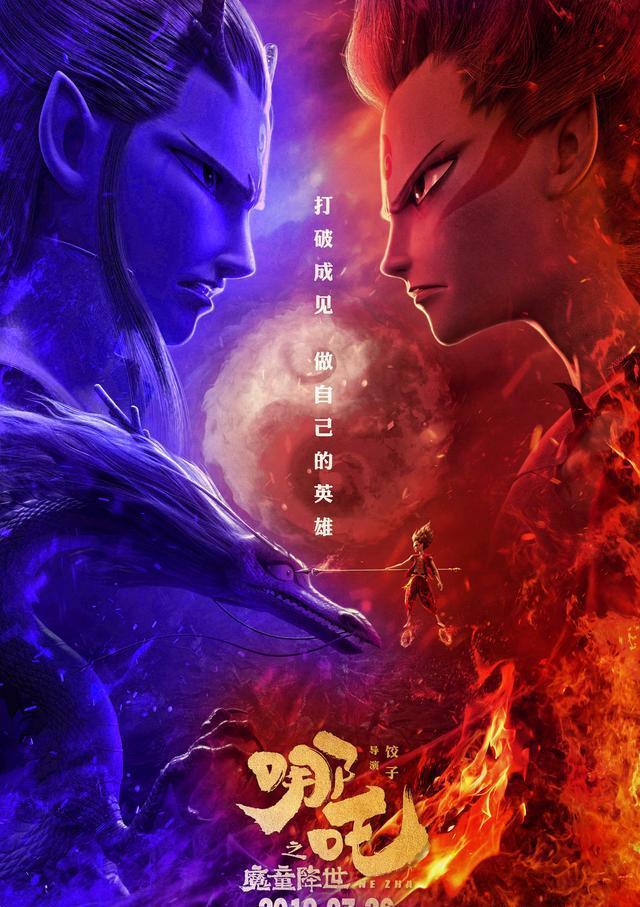From the launch of Fu Yiwei's version of "Fengshen List" in 1990, followed by Chen Haomin's version of "Fengshen List" accompanied by the author's childhood in 2001, to the TV and film works such as "Jiang Ziya" and "New God List: Nezha Reborn" released through the fire of "Nezha's Devil Boy Descending" in the past two years, plus the status of fengshen Yanyi, which is enough to rival the status of the four famous works of "Journey to the West", "Romance of the Three Kingdoms", "Dream of the Red Chamber", and "Water Margin", the author can't help but ponder, who is the author of the book Fengshen Yanyi?

The image comes from the Internet
It is generally accepted that the author of the Fengshen Yanyi is Xu Zhonglin of the Ming Dynasty, but there is still controversy.
Because it was only a version of the Fengshen Yanyi in the Ming Dynasty: Shu Zaiyang's edition of the Fengshen Yanyi was signed "Edited by Zhong Shan Yisu Xu Zhonglin" and "Jin Zhao Zaiyang Shu Wenyuan Zixing", but this proof still cannot really determine that Xu Zhonglin is the author. For example, why did Xu Zhonglin sign before the sixth return? Why aren't other chapters signed?
Let's first look at how the list of gods first appeared
The Wuwang Fa Shu Ping Dialect, or Lü Wangxing Zhou, is an old blueprint for the Speakers of the Song Dynasty, supplemented and revised by the Speakers of the Yuan Dynasty, and engraved by the Jian'an Yu clan during the Zhizhi period (1321-1323). In addition, references to ancient books and folklore were created around the time of the Ming Dynasty during the Longqing period.
Liang Zhangju quoted Lin Fanting in the "Guitian Trivia": Once upon a time, there was a reader who used up his family wealth when his eldest daughter got married, and the second daughter was very complaining, and the reader comforted her not to worry, and later according to the words of "Wei Wei has a god, and can still be compatible" in the "Shang Shu Wu Cheng", perfunctory into the book "Fengshen Biography" as the dowry of the second daughter, and later the second son-in-law gradually became popular after the "Fengshen Biography" was printed and sold.
Some people believe that the "Fengshen Yanyi" was written by Wang Shizhen in the Ming Dynasty, saying that Wang Shizhen was ordered by the imperial court to dedicate the book to the emperor after writing the "Golden Plum Bottle", Wang Shizhen felt that "Jin Ping Mei" was inappropriate, and wrote "Fengshen Yanyi" instead, but these rumors are not believed because there is no reliable evidence.
Some people also believe that the author is lu Changgeng, a Taoist priest of the Ming Dynasty, who is well-read and talented
"Legendary Huikao" Volume VII "Shun Tianshi" Legendary Solution Cloud: "The "Legend of the Fengshen Gods" was composed by Lu Changgeng, a Daoist priest of the Yuan Dynasty, and it is unknown whether it is not." In the 1930s, Zhang Zhengsheng made a mistake in defining the "Yuan Shi" as "Ming Shi".
In addition to the "Xu Zhonglin Authorship Theory", the most controversial is the "Ming Dynasty Daoist Lu Changgeng Authorship Theory". This view first appeared in the Qing Dynasty document "Legend hui kao". According to the records of the "Chronicle of The Re-cultivation of Xinghua County" volume VIII of the Xianfeng period, Lu Xixingzi Chang Geng, a Jiangsu Xinghua person, was brilliant and talented. He read a lot of books, his articles were skillful, he worked in calligraphy and painting, he could understand the profound truths such as the Heavenly Dao of Life, and the famous literati and courtiers were all crowned with their talents at that time, and he participated in the township examination many times, but failed to obtain good results. So he abandoned confucian clothes, put on the yellow crown on his head as a foreign tourist, met gaoren and strangers several times, learned a lot of immortal secrets, and later wrote dozens of books on immortal interpretation, and annotated "Zhuangzi", named "Nanhua Jing Vice Ink". Many scholars believe that Lu Xixing is good at articles and proficient in interpretation, and with his experience and cultivation, he should be the most suitable author of the "Fengshen Yanyi".
Combined with the information examined, I tend to think that the author of the Fengshen Yanyi can be one of Xu Zhonglin and Lu Changgeng, of which Xu Zhonglin is extremely likely, and it is difficult to make a conclusion.